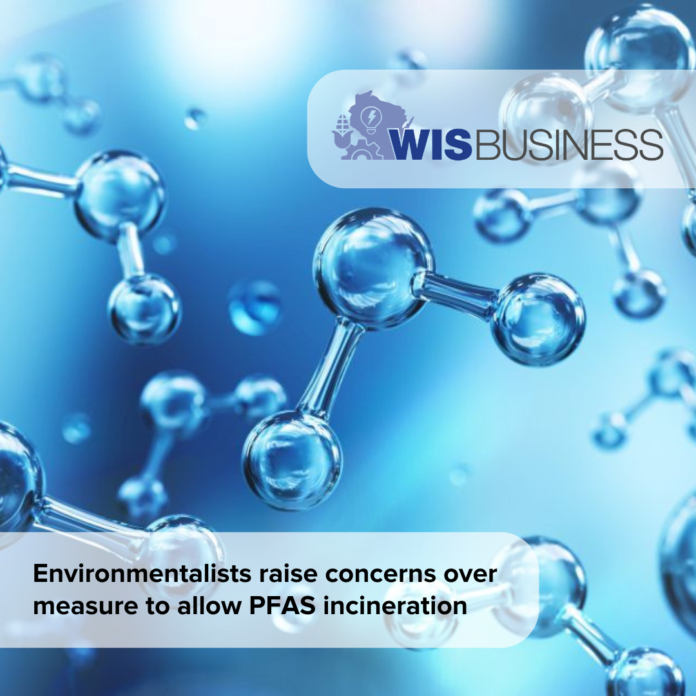Wisconsin clean water advocates are pushing back against a measure they say could pose a risk to public health and turn back the clock on progress addressing PFAS contamination.
At issue is the U.S. Senate’s version of the National Defense Authorization Act, which includes a provision to again allow the Department of Defense to use incineration as a method to dispose of PFAS-containing aqueous film-forming firefighting foam and waste after a 2022 provision temporarily curbed the practice.
More than 100 Wisconsinites, along with residents of other states, signed onto a letter to senators raising concerns the change could lead to more contamination, particularly for those who live near hazardous waste incinerators.
Cindy Boyle is the co-founder of S.O.H2O, also known as “Save Our Water,” and the former town of Peshtigo chair. She said allowing the department to incinerate PFAS is “irresponsible and unjustifiable” and puts people’s health at risk.
“This is old thinking to think that burning it and incinerating it is a justifiable method. It’s not. It’s been proven that that’s unsafe, and that’s why that was put into the NDAA in [2022],” Boyle said.
She voiced frustration about changes to current protections, saying it “seems like you have to keep refighting battles that you’ve already won when the science should prove that they were won for a reason.”
U.S. Sen. Tammy Baldwin, D-Madison, is co-sponsoring an amendment introduced by U.S. Sen. Jeanne Shaheen, D-N.H., to strike the section of the Senate bill that would lift the moratorium on DOD incinerating PFAS.
“Toxic chemicals like PFAS are dangerous for families’ health and our environment, and that’s why I’ve long fought to stop using them in firefighting foam, clean them up near our military installations, and for safer alternatives to keep Wisconsin families healthy,” Baldwin said in a statement. “We can’t roll back on this progress, and that’s why I’ll keep fighting to protect Wisconsin communities from these chemicals and make sure families have access to safe drinking water and an environment free of toxic chemicals.”
U.S. Sen. Ron Johnson, R-Oshkosh, did not return requests for comment. Sen. Eric Wimberger, R-Oconto, and Rep. Jeff Mursau, R-Critiviz, who are co-authoring a bill laying out how to use $125 million the Legislature set aside in 2023 to combat PFAS contamination, also did not return multiple requests for comment. Sen. André Jacque, R-New Franken and chair of the Senate Natural Resources, Veteran and Military Affairs Committee, did not return requests for comment on the provision either.
Paul Mathewson, science program director at Clean Wisconsin, told WisPolitics there could be risks involved when incinerating PFAS-containing waste. For one, he said failing to reach the required temperature could lead to PFAS contaminating the air.
“We have a risk here of spreading contamination rather than containing it, because if proper conditions aren’t created, then, you know, the existing studies are clear that if you don’t get high enough temperatures, you don’t burn it long enough, you’re not going to burn the PFAS,” Mathewson said.
See more in the WisPolitics REPORT.






